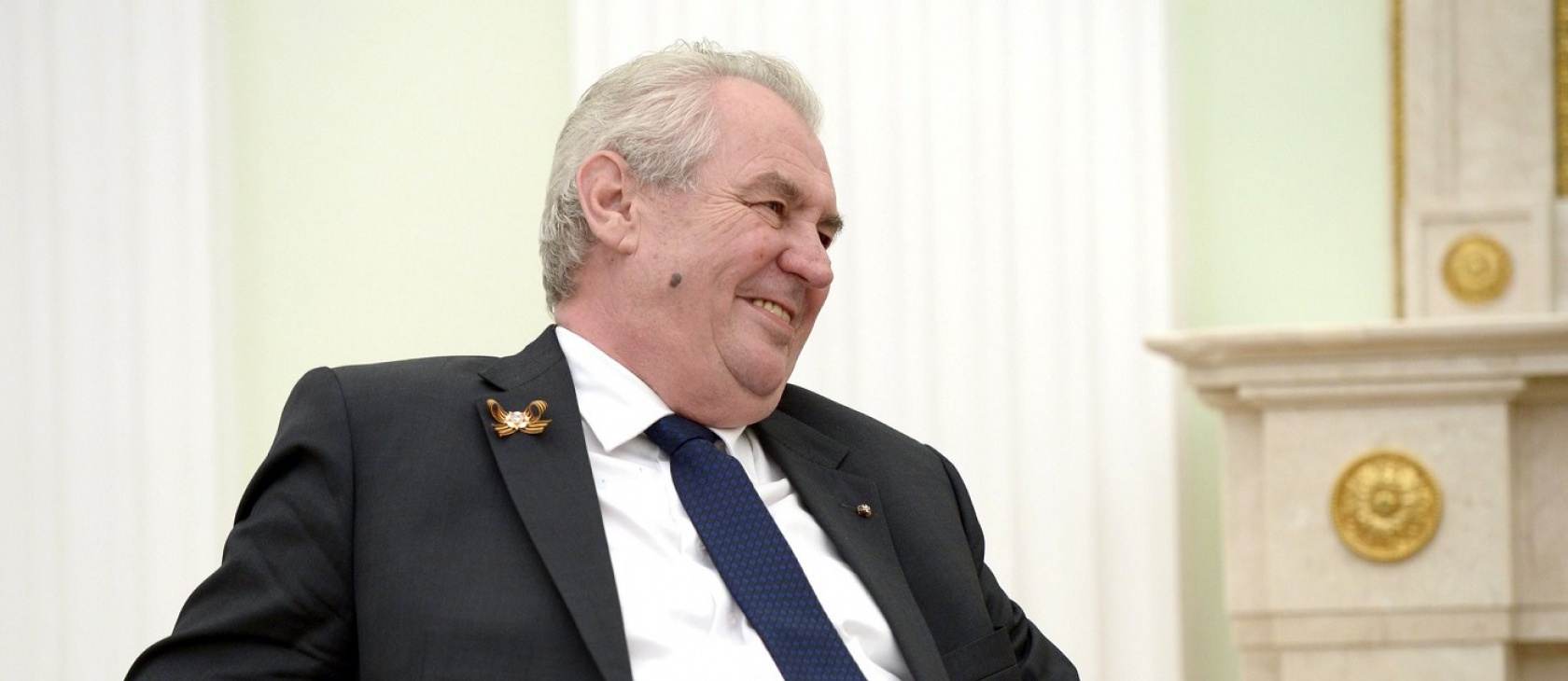On Saturday, January 27, Miloš Zeman won his second term as president of the Czech Republic with 51.36 percent of the vote in the second round of the presidential election. His opponent, Jiří Drahoš – a rather bland candidate who used to lead the Czech Academy of sciences, was a novice politician – garnered nearly 49 percent of the vote. Zeman is a veteran politician who served as prime minister from 1998 to 2002.
Politically, Zeman is a social democrat and his leadership made the Czech Social Democratic Party one of the two major parties until the classical party system collapsed in the Czech Republic. (After his party failed to elect him president in 2002, he began attacking it.) However, that is not to say he is a progressive; he could be described as a traditional social democrat: in U.S. parlance, fiscally liberal but socially conservative. Economically, he supports progressive taxation, a wide social net, and other traditional social democratic themes. In his first term, he usually brought a significant contingent of businessmen with him on his foreign trips and tried to encourage foreign investment in the Czech Republic, especially from China and Russia. But while a lot of contracts have been signed, the real monetary value of these efforts was not substantial.
His foreign policy views are a curious mix. On one hand, he claims to favour a European federation, which he takes pains to distinguish from a European unitary state. This is a rather subtle distinction wholly lost on most of his voters, who tend to dislike the EU. It is a testament to Zeman’s personal popularity amongst his voters that this has not made any dent in his support.
Zeman has a convoluted relationship with the Roman Catholic Church.
His stance on the euro could be shortly described as “yes … but no.” Zeman wants the Czech Republic to enter the eurozone only after Greece leaves or is expelled. His explanation is that while Greece is a member, accepting the euro would be a risk since the Czech Republic might have to pay Greek debts should it go bankrupt. Of course, since it is extremely unlikely that Greece will leave the eurozone, this is the same as saying no to euro in the short term.
Zeman’s stance on migration is one of the underpinnings of his popular support. He is resolutely against the EU’s quota program for accepting Middle Eastern migrants, or accepting any large number of immigrants from Muslim countries. He instead proposes sending financial aid to countries in distress. His anti-immigration stance is very much in accord with a large majority of the Czech society. One of the biggest problems Jiří Drahoš had as a candidate was his inability to convince many voters that he was also opposed to mass immigration. One of the most effective attacks against Drahoš was labelling him a “vítač” (a direct translation would be something like “Welcomer,” indicating someone in favour of accepting immigrants).
Zeman has a convoluted relationship with the Roman Catholic Church. On one hand, he is very friendly with the primate of Bohemia, Cardinal Dominik Duka (whom some clerics have criticised for his fawning attitude towards the Czech president) and some other prelates. On the other, he supports a review of the restitution program and has called it too generous. That policy vowed to return to churches the property stolen by the Communist regime or annual reimbursement payments for properties that could not be returned. This restitution has been criticised from two angles. One is traditional hatred of churches in general stemming from the Marxist era; the second claims that the churches are receiving too much money. Some of the parliamentary parties are suggesting that the yearly sum (which is time limited) should be taxed. This is likely unconstitutional, since it would mean breaking an agreement which the state has signed. However, it would be popular in some quarters, making it likely to remain part of the political conversation.
This will be Zeman’s last term, as he cannot run for a third term. As such, he will likely act with even less restraint than he has in his first term. In his victory speech he promised to be more mild and humble … but since then he has already insulted several journalists and his political opponents. While president of the Czech Republic has much less power than the president of the U.S., he still has a lot of influence and can obstruct a great deal if he so chooses. The West will want to watch his policies on church restitution and migration.
(Photo credit: en.kremlin.ru. This photo has been cropped. CC BY 4.0.)




